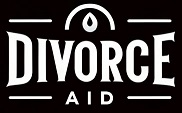Domestic violence encompasses not only physical or sexual harm but also includes psychological or financial manipulative behaviors within intimate or familial relationships. This pattern of behavior is aimed at maintaining power and control over the victim.
Even without physical violence, forms of abuse such as emotional manipulation, financial control, or restricting freedom can be equally harmful. The root of domestic violence lies not in external factors like substance abuse or financial stress but in the abuser’s need for dominance.
The concept of domestic violence includes various forms of harm from one individual to another within a pre-existing relationship, which could range from physical assaults to subtle forms of control like harassment or financial manipulation.
Evaluating your relationship for signs of abuse involves reflecting on whether your partner demeans you, controls your access to resources, isolates you from social activities, or resorts to intimidation or violence. These behaviors can signal an abusive dynamic.
Immediate safety should be your priority if you’re in danger. Contacting the police or seeking advice from domestic violence units can provide crucial support and information. Remember, it’s possible to start anew, focusing on safety and well-being.
The Family Law Act 1996 offers legal protection against domestic violence, enabling victims to apply for Non-Molestation Orders and Occupation Orders to safeguard themselves and their living situations.
Support organizations like Women’s Aid and Refuge provide a helpline, advice, and refuge for those affected by domestic violence. They emphasize the importance of understanding domestic violence as a societal issue, stressing the legal and moral obligation to protect victims.
For men experiencing domestic abuse, services like the Men’s Advice Line offer support and guidance, emphasizing non-judgmental assistance and practical solutions.
Legal resources, including the Citizens Advice Guide and organizations like Rights of Women, offer legal advice and support, focusing on empowering women through knowledge of their legal rights.
Remember, domestic violence is a violation of personal safety and rights. Seeking help, whether through helplines, legal avenues, or support services, is a step towards regaining control and ensuring safety for you and your loved ones.
